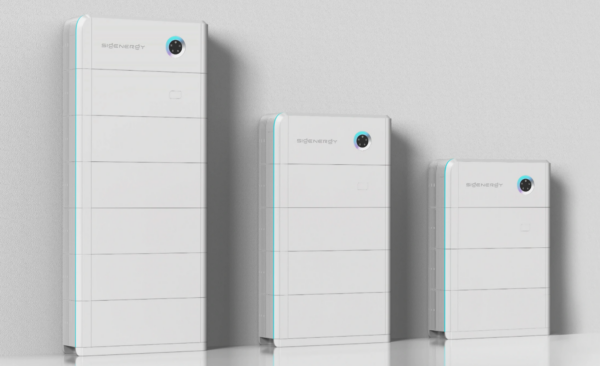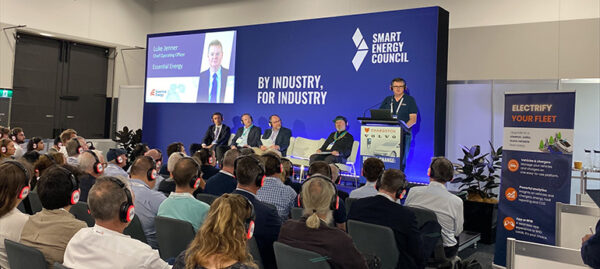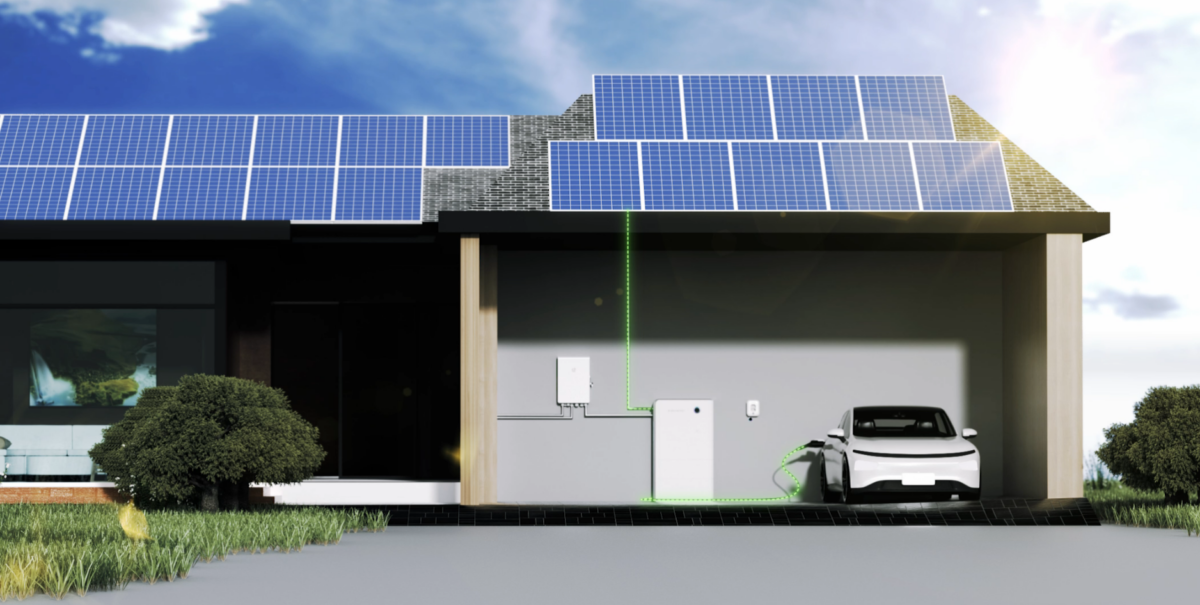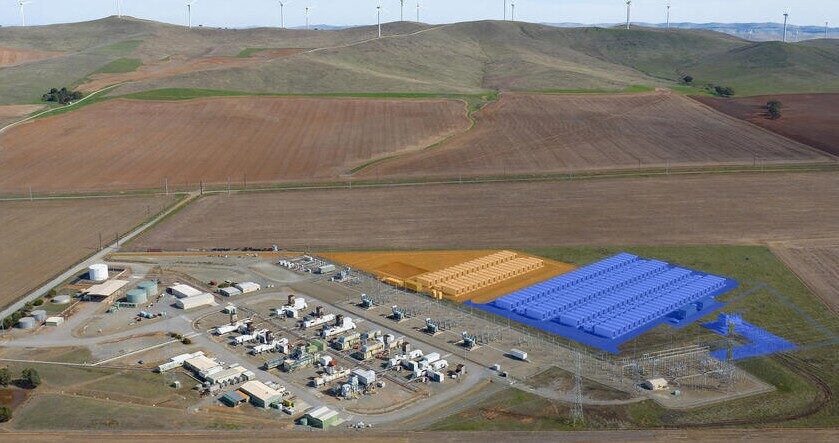A collaboration of Essential Energy, the CSIRO, Sigenergy Australia, and Austrailan electric vehicle (EV) company, AUSEV have tested and confirmed, vehicle-to-grid (V2G) technology is market ready in Australia.
New South Wales electricity distributor Essential Energy, Australia’s national science agency, the CSIRO, China-headquartered battery solutions company Sigenergy Australia, and Australian-owned distributor of commercial electric vehicles (EV) AUSEV made the joint announcement at Smart Energy 2025 in Sydney.
Essential Energy said it had successfully connected AUSEV’s EV Ford F-150 Lightning with a combined charging system (CCS2) DC bi-directional charger and the Clean Energy Council (CEC) approved Sigenergy storage system.
The Sigenergy SigenStor energy storage system with integrated V2G charger can be installed on the Essential Energy network through the existing solar connection process.
Essential Energy with the CSIRO are currently investigating V2G technology with other car manufacturers in order to provide additional options for customers.
Essential Energy Chief Operating Officer Luke Jenner said the EV Ford F-150 Lightning test results are a huge step forward in enabling the energy transition.
“V2G unlocks the potential for customers to get more value out of their renewable energy investments and is a critical step in facilitating the uptake of electric vehicles,” Jenner said.
“We have been trialling V2G on our network since 2023 with a customer using his Nissan Leaf and the Wallbox Quasar charger.”
Jenner added that in 2024 the CSIRO ran an additional trial at Essential Energy’s Port Macquarie Innovation Hub and tests confirmed the Sigenergy SigenStor CCS2 DC bi-directional charger and the AUSEV Ford F-150 Lightning work effectively on Essential Energy’s network.

Image: Sigenergy Australia
Commonwealth Scientific and Industrial Research Organisation (CSIRO)
The partnership with CSIRO is to research and trial V2G technology as part of a home electricity management system and to understand how it can be integrated into buildings and the electricity grid.
CSIRO Project Leader Dr Sam Behrens said the development is a key transition step in supporting rooftop solar and grid stability in Australia.
“This pilot project marks an important milestone for Australia, successfully demonstrating a CCS2 bi-directional charger with a market available V2G-capable vehicle,” Behrens said.
“This is significant as it opens the way for wider adoption of commonly available CCS2-compatible V2G technology, enabling households and utilities to use EVs as flexible energy resources.”
Sigenergy Managing Director for Australia and New Zealand Will Hall said as the first to commercialise bi-directional charging in the energy industry, Sigenergy is pushing the boundaries of energy flexibility and unlocking new possibilities for a smarter, more resilient grid.
“Our vision is to turn cutting-edge solutions into tangible benefits for users, while accelerating the transition to a more sustainable energy future,” Hall said.

Image: Essential Energy
AUSEV Chief Executive Officer Edward Kocwa said the benefits of V2G for customers will be a game-changer for the industry.
“Not only will customers be able to use the F-150 Lightning as a work ute, it will now essentially turn the vehicle into a mobile battery pack. It also has a very large battery (131 kWh) meaning it can power homes and small buildings for an extended period during power outages,” Edwared said.
“Essential Energy has been an early adopter of the energy transition, and we applaud their commitment to innovation in providing Australians with more ways to potentially reduce energy costs at home and at work.”
This content is protected by copyright and may not be reused. If you want to cooperate with us and would like to reuse some of our content, please contact: editors@pv-magazine.com.









1 comment
By submitting this form you agree to pv magazine using your data for the purposes of publishing your comment.
Your personal data will only be disclosed or otherwise transmitted to third parties for the purposes of spam filtering or if this is necessary for technical maintenance of the website. Any other transfer to third parties will not take place unless this is justified on the basis of applicable data protection regulations or if pv magazine is legally obliged to do so.
You may revoke this consent at any time with effect for the future, in which case your personal data will be deleted immediately. Otherwise, your data will be deleted if pv magazine has processed your request or the purpose of data storage is fulfilled.
Further information on data privacy can be found in our Data Protection Policy.